CLAS 301B
March 25, 2024
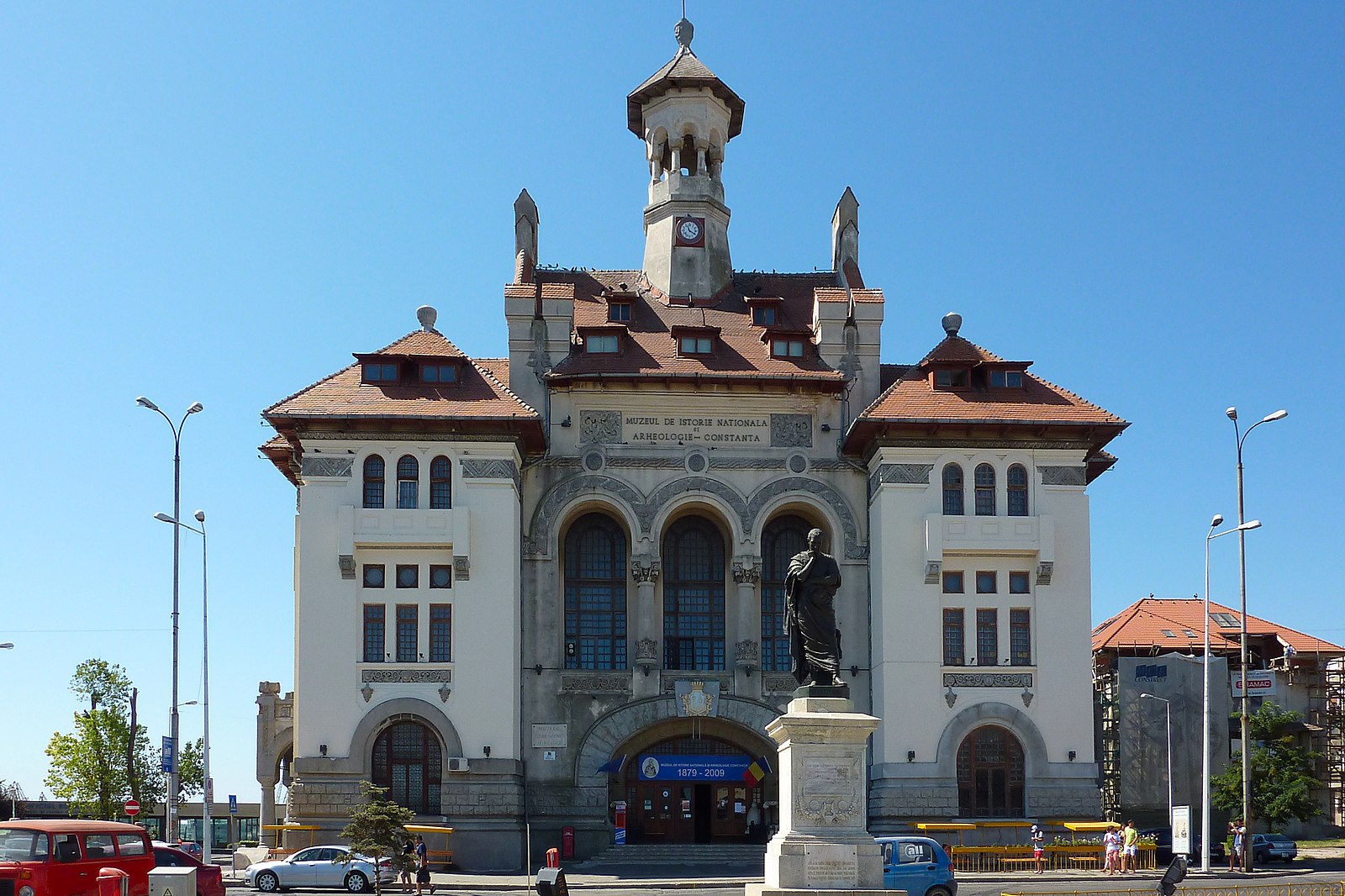
Ovid's statue (National History Museum,
Constanța)
Study Guide for Examination #2 (Wednesday, March 27)
Ovid, Art of Love, Heroides, Tristia
Art of Love (Ars Amatoria, ca. 1 BCE): parodic didactic poem of (elegiac & metapoetic) praeceptor amoris; carmen behind his exile?
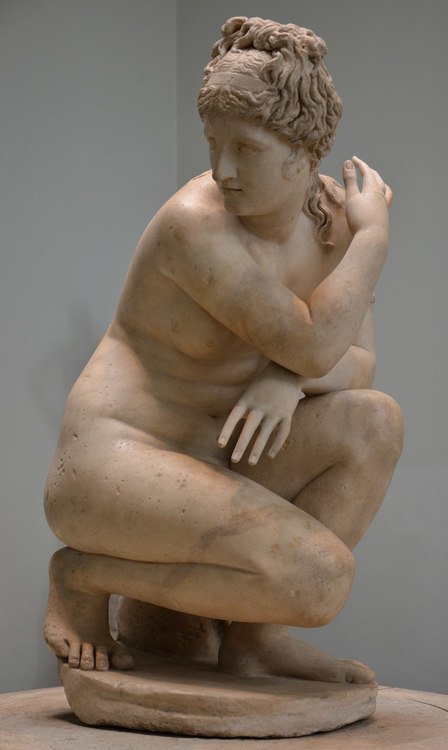
Roman copy of Hellenistic marble of Venus crouching (2nd century CE)
Ars Amatoria 1.1ff. (programmatic opening)
Should anyone here not know the art of love,
read this, and learn by reading how to love.
By art the boat’s set gliding, with oar and sail,
by art the chariot’s swift: love’s ruled by art.
Automedon was skilled with Achilles’s chariot reins,
Tiphys in Thessaly was steersman of the Argo,
Venus appointed me as guide to gentle Love:
I ’ll be known as Love’s Tiphys, and Automedon . . .
. . . Nor will I falsely say you gave me the art, Apollo, [recusatio of a recusatio!]
no voice from a heavenly bird gives me advice,
I never caught sight of Clio or Clio's sisters
while herding flocks, Ascra, in your valleys: [Boeotia]
Experience prompts this work: listen to the expert poet:
I sing true: Venus, help my venture!
Far away from here, you badges of modesty,
the thin headband, the ankle-covering dress. [metonymy? Ovid's audience?]
I sing of safe love, permissible intrigue,
and there'll be nothing sinful in my song. [inque meo nullum carmine crimen erit]
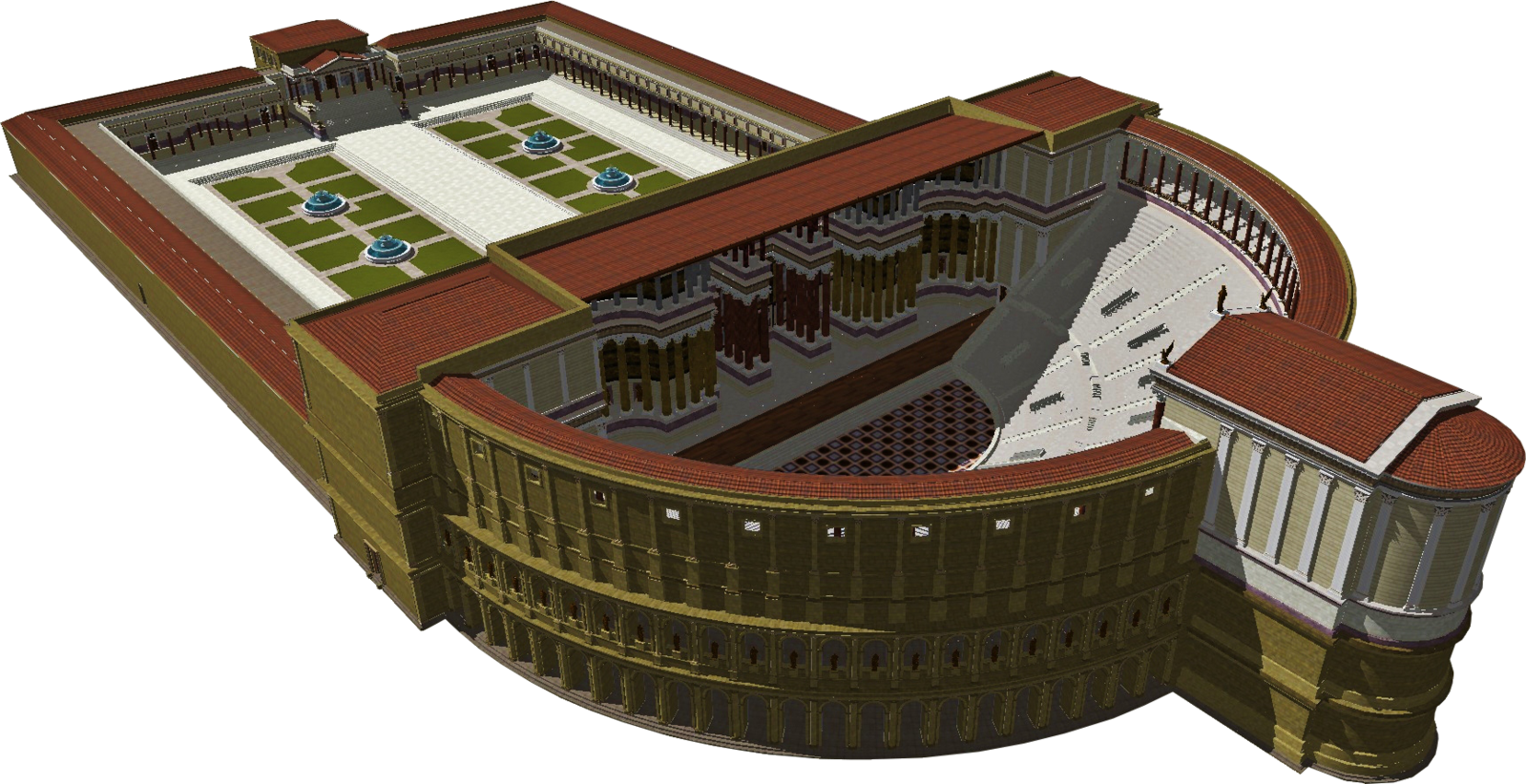
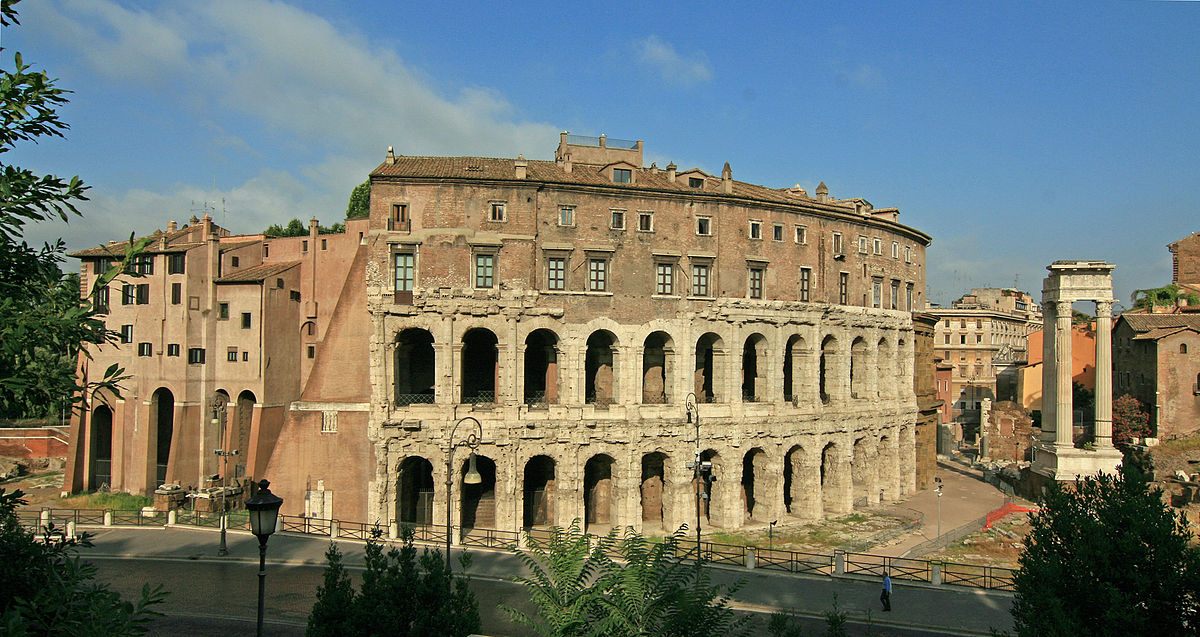
L: Theater of Pompey (55 BCE); R: Theater of Marcellus (13 BCE)
- opening topic: where & how to hook-up in Rome (Augustan public spaces, theater, circus, triumphs, dinner parties, beach)
Art of Love 1.67-74
Just walk slowly under Pompey’s shady colonnade,
when the sun’s in Leo, on the back of Hercules’s lion:
or where Octavia added to her dead son Marcellus’s gifts,
with those rich works of foreign marble.
Don’t miss the Portico that takes its name
from Livia its creator, full of old masters. [Porticus Liviae, 7 BCE]
or where the daring Danaids prepare to murder their poor husbands,
and their fierce father stands, with out-stretched sword. [Temple of Palatine Apollo, 36 BCE]
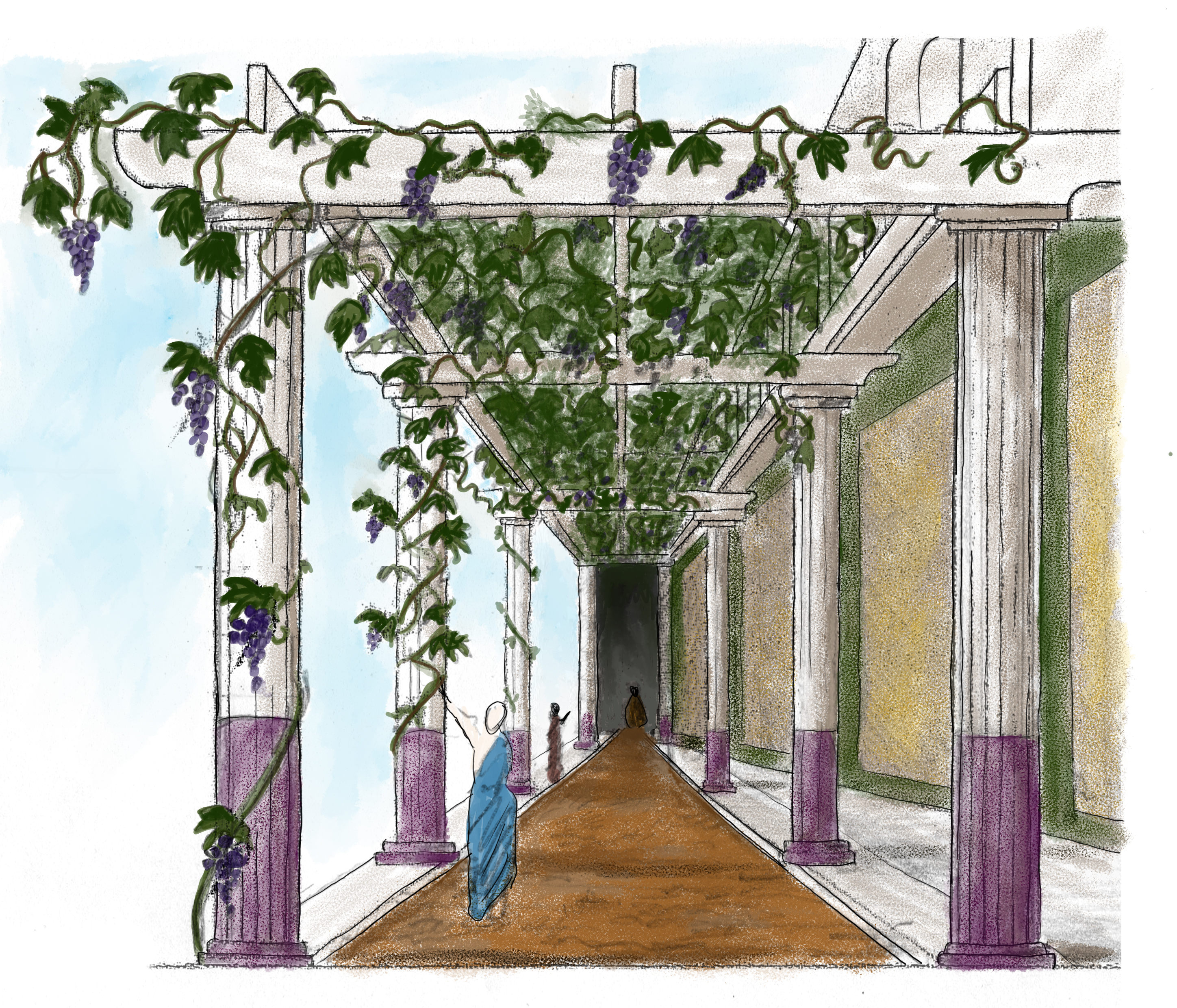
Art of Love 1.89-98 ("epic" elegiac pursuits at the theater)
There you’ll find one to love, or one you can play with,
one to be with just once, or one you might wish to keep.
As ants return home often in long processions,
carrying their favourite food in their mouths,
or as the bees buzz through the flowers and thyme,
among their pastures and fragrant chosen meadows,
so our fashionable ladies crowd to the famous shows:
my choice is often constrained by such richness.
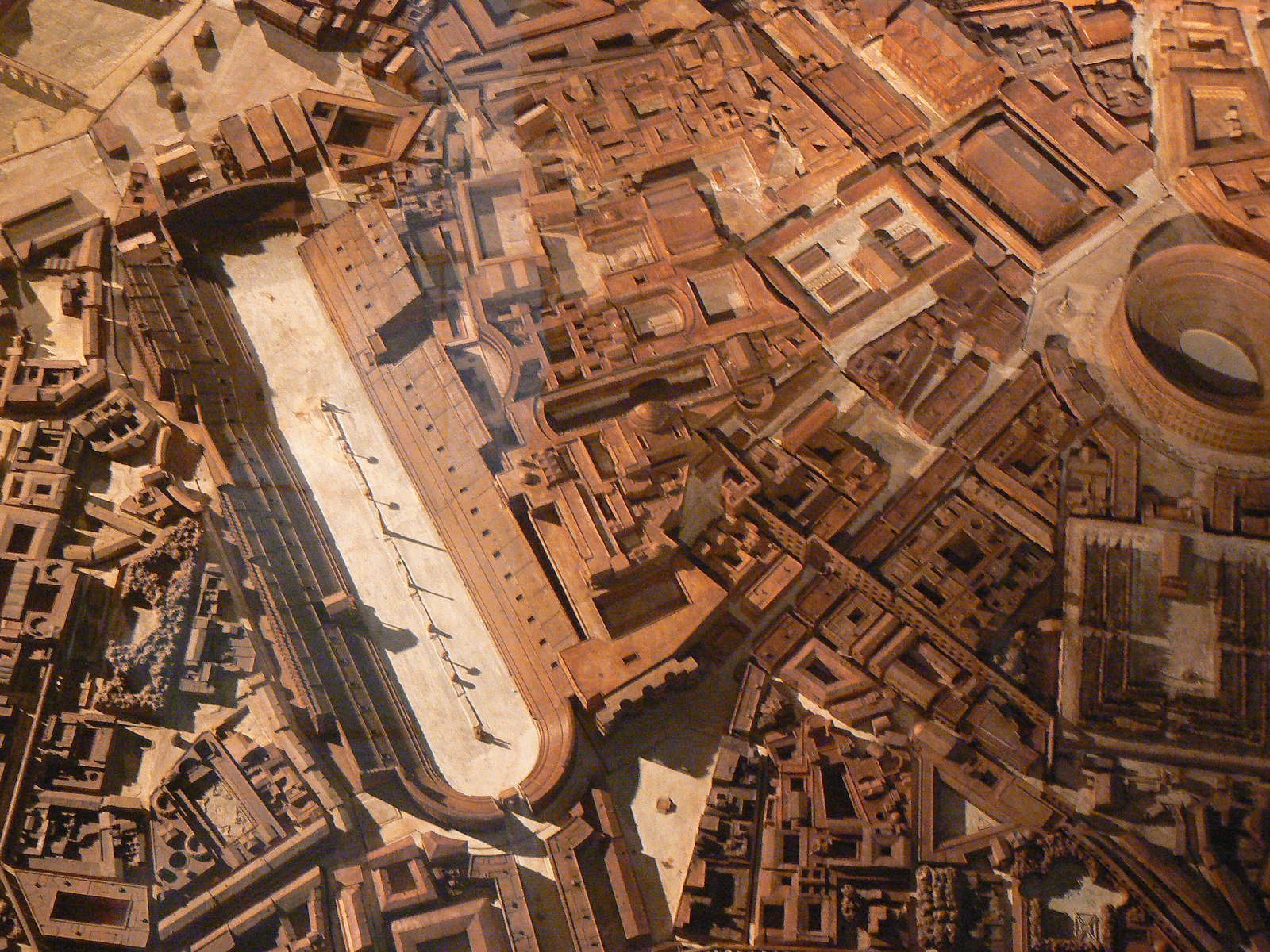
3D reconstruction of Circus Maximus
- Love-Doctor at the circus (cf. Amores 3.2): "You can sit by your lady: nothing’s forbidden, / press your thigh to hers, as you can do, all the time: / and it’s good the rows force you close, even if you don’t like it, / since the girl is touched through the rules of the place" (1.139-42)
Art of Love 1.171-9 (naumachia of Augustus, Temple of Mars dedication, 2 BCE)
When, lately, Caesar, in mock naval battle,
exhibited the Greek and Persian fleets,
surely young men and girls came from either coast,
and all the peoples of the world were in the City?
Who did not find one he might love in that crowd?
Ah, how many were tortured by an alien love!

Poster for Purcell's opera, Dido and Aeneas (Vancouver 2015)
Heroides (pre-exile of 8 CE: cf. Amores 2.18.21ff.): twenty-one letters (ethopoeia, "speech in character"), e.g. Penelope to Odysseus, Ariadne to Theseus; rhetoricalized & poeticized epistolary
Elise Larres, "On the Air: An Intersemiotic Translation of Ovid's Heroides" (U. of Arizona Classics MA Thesis, 2021): Ariadne - Demo, Wind (narrator) – Demo
- Heroides 7 = Ovid's reception of Aeneid 4: continuation of Dido's arguments; expanded & critical readings of Vergil (e.g. a more elegiac Dido, odi/hate ~ amo/love, 7.29-30? cf. Catullus 85); she's pregnant (7.133; cf. Aeneid 4.327-30)!
Heroides 7.81-6 (on Aeneas' narrative, Aeneid 2)
You lied about it all: for your lying tongue did not
start with me, nor am I the first one to be punished:
if you ask where Creusa is, the lovely mother of Iulus –
she died alone, abandoned by a hard-hearted husband!
You told me this, but in winning me you suppressed it.
From that minor fault, came my future punishment.
Heroides 7 (exegesis of the nymphs' ululations, Aeneid 4; owning her mistakes)
That day harmed me, when a sudden dark rainstorm
forced us to shelter under the roof of a cave.
I heard a voice: I thought it the nymphs’ wailing:
it was the Furies giving warning of my fate.
Heroides 7.139-42 (mocking the divine mission: cf. "As if the gods lose sleep or worry over this!", Aen. 4. 379)
'But the god orders me to go.' I wish he had prevented your
coming to Carthage, its earth from being touched by a Trojan.
Led by this god, are you not driven by adverse winds,
and endlessly scoured by ravening seas?
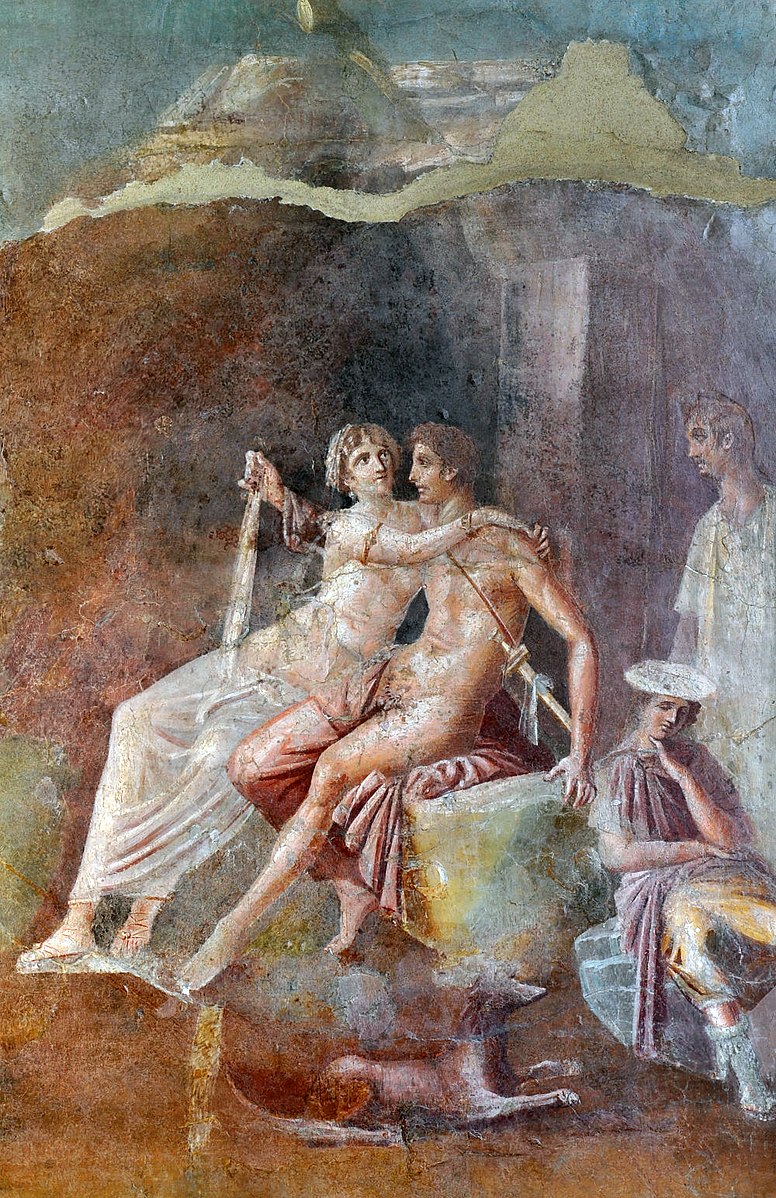
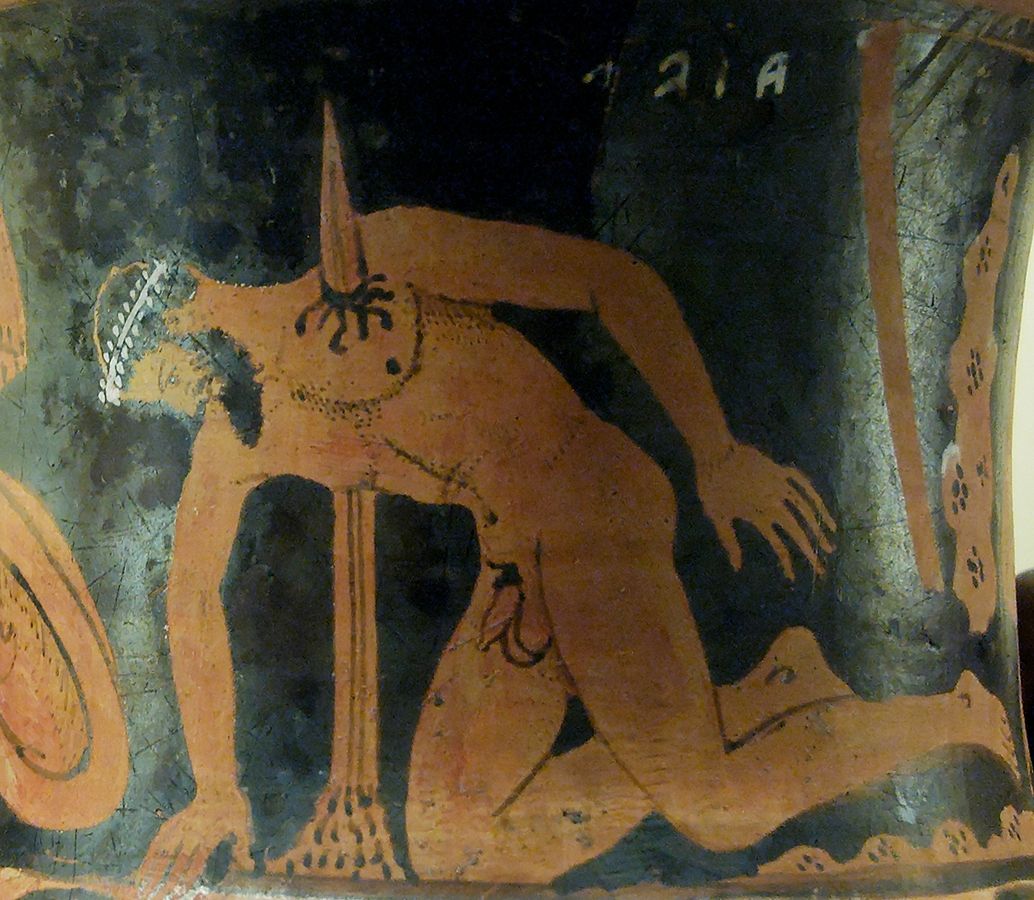
L: Dido and Aeneas fresco (Pompeii, 1st century CE); R: Suicide of Ajax ( Etrurian calyx-krater, ca. 400-350 BCE)
- Dido's death (tragic figure and elegiac lover?)
Heroides 7.193-6 (final instructions to Anna)
Do not write ‘Sychaeus’s Elissa’, when I’m consumed by fire,
let this verse, alone, appear on my marble tomb:
‘Aeneas offered a reason to die, and the sword.
Dido killed herself by her own hand.’ [cf. "did I cause your death?", Aeneid 6.458]

Pelicans on the Danube River (Romania)
Tristia ("Sorrows", 5 books, 9-12 CE; book 2 a single poem appealing for clemency): exile poetry (cf. Epistulae ex Ponto)
Australian poet David Malouf's novella, An Imaginary Life (1978)
- Tomis as hostile & insecure anti-Rome (year-round) > a psychological landscape
Tristia 3.10.19-24 (winter)
Men keep out the dreadful cold with sewn trousers
and furs: the face alone appears of the whole body.
Often their hair tinkles with hanging icicles,
and their beards gleam white with a coat of frost.
Wine stands exposed, holding the shape of the jar,
and they drink draughts of mead, but frozen lumps.
Tristia 3.10.77-8 (a subjective wasteland)
This then, though the great world stretches wide,
is the place invented for my punishment!
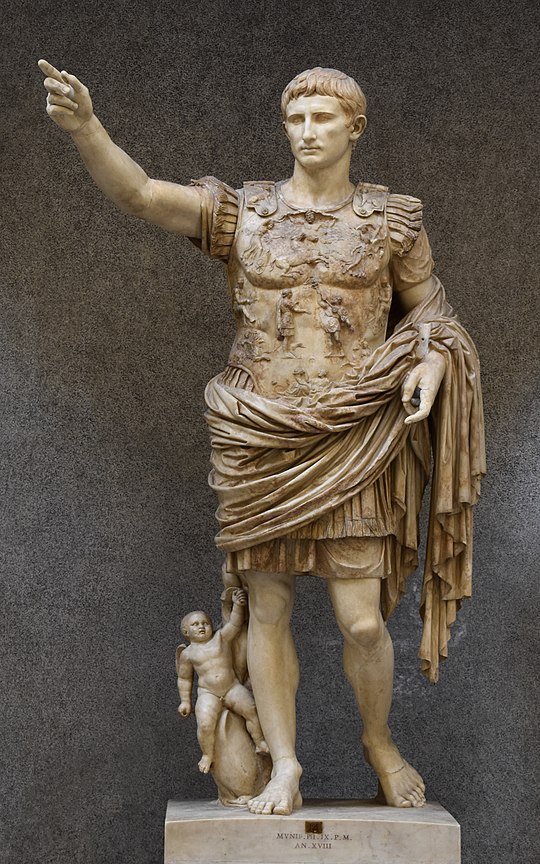
- pathos of hope? clementia?
Tristia 3.12.31-54 (spring)
Ships will be starting to make their voyage here,
and there’ll be friendly prows on the Pontic shore.
I’ll go eagerly to meet the captain, and greet him:
I’ll ask why he comes, who he is and from where.
It’ll be strange if he’s not from a neighbouring place,
one who’s not safely ploughed the local waters.
It’s rare for sailors to cross the deep sea fom Italy,
rare for them to come to this harbourless coast.
Yet if he knows how to speak in Greek or Latin
– and for sure the latter tongue would be more welcome –
possibly someone too who’s sailed with a steady southerly
from far Propontis, and the mouth of the straits,
whoever he is he can recount the news he knows,
and be the sharer and passer-on of rumour.
I hope he can tell what he’s heard of Caesar’s triumphs,|
of prayers made to our Roman Jupiter*, and that you
rebellious Germany, at last, have bowed
your sorrowful head beneath the general’s foot.
He who tells me things, I’m sad I haven’t seen,
will be an instant guest in my house.
Ah, is Ovid’s house, now, in the Scythian world?
Does my sentence assign the land, it specified, as Home?
Gods, let Caesar not will my hearth and home here,
but only a temporary lodging as a punishment.
[*cf. Tristia 3.11.61-2
Believe me, if Ulysses is compared to me,
Neptune’s anger was much slighter than Jove’s.]










